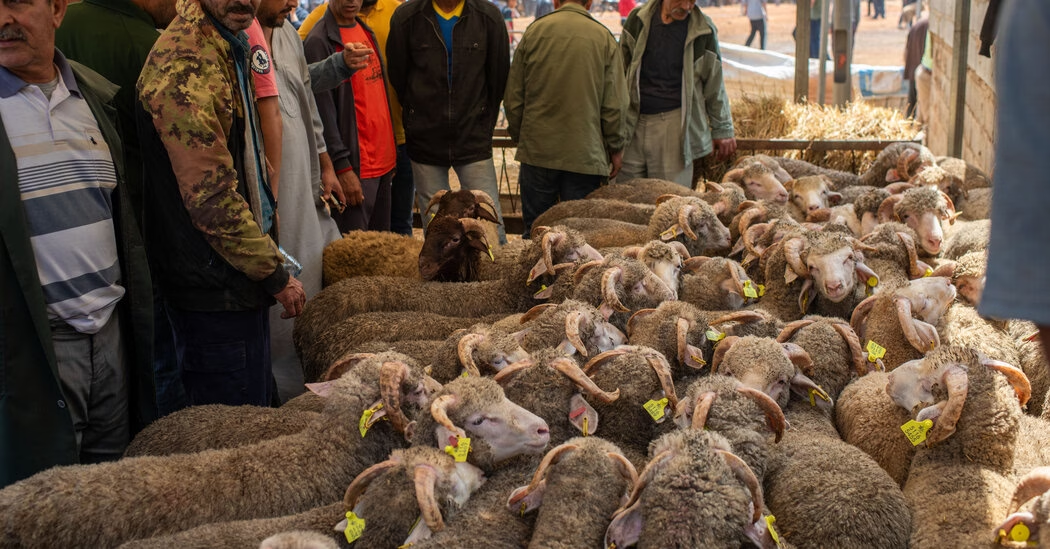Moroccan families typically celebrate Eid al-Adha, known as the Feast of Sacrifice, with morning prayers at the mosque and evening gatherings enjoyed with succulent meat skewers. However, in the past few years, many have struggled to afford even essential items, let alone a sheep for the holiday.
Due to this, when King Mohammed VI addressed the public, citing economic and climate challenges, and advised against purchasing sheep to be sacrificed for this year’s June celebration, it offered significant relief. The king mentioned that performing the sacrifice under present hardship conditions would negatively impact many, especially those with low incomes. He also stated that he himself would perform the Eid sacrifice on behalf of his people.
Over seven years of drought, exacerbated by extreme heat associated with climate change, has significantly challenged Morocco economically. The resulting lower harvest yields, depleting water sources, and consequent rise in food prices have all affected the country.
In this context, King Mohammed addressed the potential difficulties Moroccans might face in celebrating Eid al-Adha. He mentioned his responsibility to consider both the religious practices and the economic and climate challenges facing the country, which have led to a substantial decrease in livestock numbers.
Eid al-Adha is an expensive celebration for most Moroccans, involving the purchase of a sheep, which is then slaughtered and shared with others. Many usually save money just for that, and some even team up with neighbors to afford it. Nargisse Benkabbou, a chef specializing in Moroccan cuisine, noted that the king’s call for restraint was a national solidarity measure, relieving individuals of guilt who otherwise would be unable to purchase a lamb.
This could also alleviate financial pressure during the iftar meals of Ramadan and Eid al-Fitr celebrations. Financially, many are already struggling, with a significant portion of the population unemployed or underemployed.
The king, who took the throne in 1999, has never called for the sacrifice to be skipped, though his father, King Hassan II, did so three times during periods of hardship. Currently, the population of sheep and cows in Morocco is 38 percent lower than in 2016, and prices have surged. Despite importing sheep from Australia to boost livestock numbers, the prices are considered too high for many. However, the development brought a mix of sadness for the lost religious tradition and relief from unaffordable costs, as expressed by those impacted.
Source: https://www.nytimes.com/2025/03/07/world/middleeast/morocco-king-eid-sheep-slaughter.html





